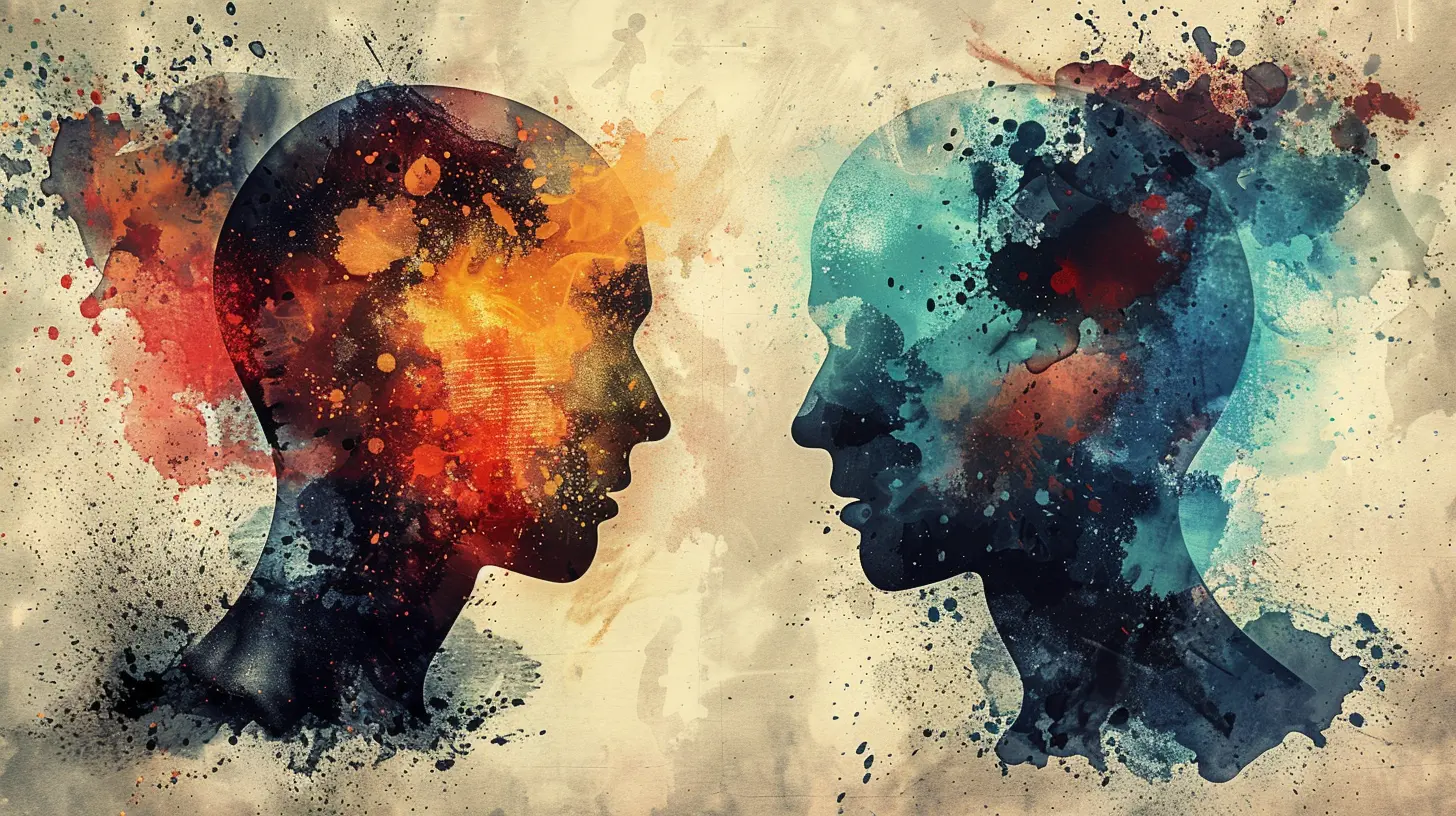17 April 2025
Ever found yourself in a situation where emotions completely take over? Maybe you're an introvert who shuts down when overwhelmed, or an extrovert who explodes like a firecracker when frustrated. Either way, emotional regulation is something we all have to deal with—whether we like it or not.
Understanding how we process emotions based on our personality type can be a game changer. Introverts and extroverts experience emotions differently, which means their coping strategies shouldn't be one-size-fits-all. So, let’s dive into emotional regulation and how both introverts and extroverts can master the art of keeping their emotions in check.

What is Emotional Regulation?
Before we get into the nitty-gritty, let’s break down what emotional regulation actually means. Simply put, it’s the ability to control your emotions instead of letting them control you. Picture it like driving a car—you’re either behind the wheel, steering through life’s twists and turns, or emotions are in the driver’s seat, taking you on a chaotic road trip.Effective emotional regulation means knowing when to hit the brakes, when to accelerate, and when to take a detour to avoid an emotional crash. And guess what? How you regulate emotions depends heavily on your personality type.

Introverts vs. Extroverts: The Emotional Divide
Introverts and extroverts aren’t just about being quiet or loud at parties—they process emotions in completely different ways. Let’s break it down:How Introverts Handle Emotions
Introverts tend to internalize their emotions. Instead of talking it out, they retreat into their minds, replaying scenarios over and over (sometimes until 3 AM). While this introspection can be helpful, it often leads to overthinking, anxiety, and emotional bottling.- They Need More Time to Process – When something upsetting happens, introverts don’t react immediately. They need time to sit with their feelings, analyze the situation, and then decide how to respond.
- Overwhelming Emotions Lead to Shutdowns – If emotions become too intense, introverts might withdraw completely, avoiding social interactions, texts, and even Netflix recommendations.
- Self-Reflection is Their Superpower – They are naturally introspective, which helps them gain deep insights into their emotions—if they don’t get stuck in an overthinking loop.
How Extroverts Handle Emotions
Extroverts, on the other hand, are external processors. If something is bothering them, they need to express it. They might rant, vent, or just blurt out their feelings, looking for immediate feedback.- They Process Emotions Out Loud – Extroverts think while they speak, which means their emotions often come tumbling out before they’ve fully processed them.
- Emotions Can Escalate Quickly – If an extrovert is upset, you’ll know it. They’re more likely to express frustration, excitement, or sadness in a big way.
- Social Interaction is Their Coping Mechanism – Unlike introverts who withdraw, extroverts seek out people to help them cope with emotional stress.
Now that we’ve established how introverts and extroverts deal with emotions differently, let’s look at how they can regulate emotions more effectively.

Emotional Regulation Strategies for Introverts
Since introverts tend to internalize their emotions, they need strategies that help them process feelings without getting lost in their own heads.1. Journaling: The Mind Dump Method
Writing things down helps introverts get their emotions out without feeling pressured to talk. Think of it as a brain detox—get all those swirling thoughts onto paper so they stop clogging up your mental space.2. Scheduled Alone Time
Too much social interaction can overwhelm introverts, making emotional regulation even harder. Scheduling alone time to recharge is crucial. Whether it’s reading, taking a solo walk, or binging a comfort show, having a break from people can do wonders.3. Mindfulness and Meditation
Ever feel like your thoughts are running a marathon in your head? Mindfulness helps slow them down. Techniques like deep breathing, guided meditation, or just sitting in silence can help introverts regulate emotions without spiraling into overthinking.4. Setting Boundaries
Introverts often struggle with saying no, which leads to burnout and emotional overload. Learning to set boundaries—whether it’s declining an invite or limiting social media time—can help reduce stress.5. Talking to a Trusted Friend
Even though introverts prefer solitude, bottling up emotions isn’t healthy. Talking to a close friend (in small doses) can provide perspective and relief.
Emotional Regulation Strategies for Extroverts
Since extroverts rely on external processing, they need strategies that allow them to express emotions without letting them spiral out of control.1. Verbal Processing—But With Limits
Talking through emotions is great, but not if it turns into endless venting. Extroverts can benefit from setting a time limit—maybe 10-15 minutes—to express emotions and then shift to problem-solving.2. Physical Activity to Burn Off Energy
Extroverts have a lot of emotional energy, and sitting still with their feelings can be tough. Activities like running, dancing, or even just walking while talking on the phone can help regulate emotions.3. Practicing the Pause
Because extroverts react quickly, they sometimes say things in the heat of the moment and regret it later. Practicing the pause—taking a deep breath before responding—can help prevent emotional outbursts.4. Engaging in Creative Expression
Extroverts often thrive when they’re expressing themselves. Whether it’s playing an instrument, painting, or even karaoke, creative outlets can be a powerful emotional release.5. Surrounding Themselves with Positive Energy
Extroverts absorb energy from their surroundings, so being around positive, supportive people can impact their emotional state. Choosing the right social circle can make a big difference in how they regulate emotions.The Common Ground: Regulation Techniques for Both
While introverts and extroverts have different emotional needs, some regulation strategies work well for both:- Sleep Well, Feel Well – Poor sleep makes emotional regulation harder for everyone, regardless of personality type.
- Healthy Eating Habits – Blood sugar crashes can turn anyone into an emotional rollercoaster (hello, hanger).
- Daily Gratitude Practice – Focusing on what’s going right helps shift perspective and improves emotional balance.
- Therapy or Coaching – Talking to a professional isn’t just for crisis mode; it’s an excellent way to develop healthier emotional habits.
Final Thoughts
At the end of the day, emotional regulation isn’t about suppressing emotions—it’s about managing them in a way that keeps you in control. Whether you’re an introvert who needs more quiet reflection or an extrovert who thrives on external feedback, the key is understanding what works for you.Instead of forcing yourself into coping mechanisms that don’t fit your personality, embrace strategies that align with how you naturally process emotions. After all, emotional regulation is less about changing who you are and more about harnessing your strengths to navigate life with a little more ease.




Mackenzie Cook
Understanding emotional regulation enhances both personality types.
April 18, 2025 at 4:47 PM